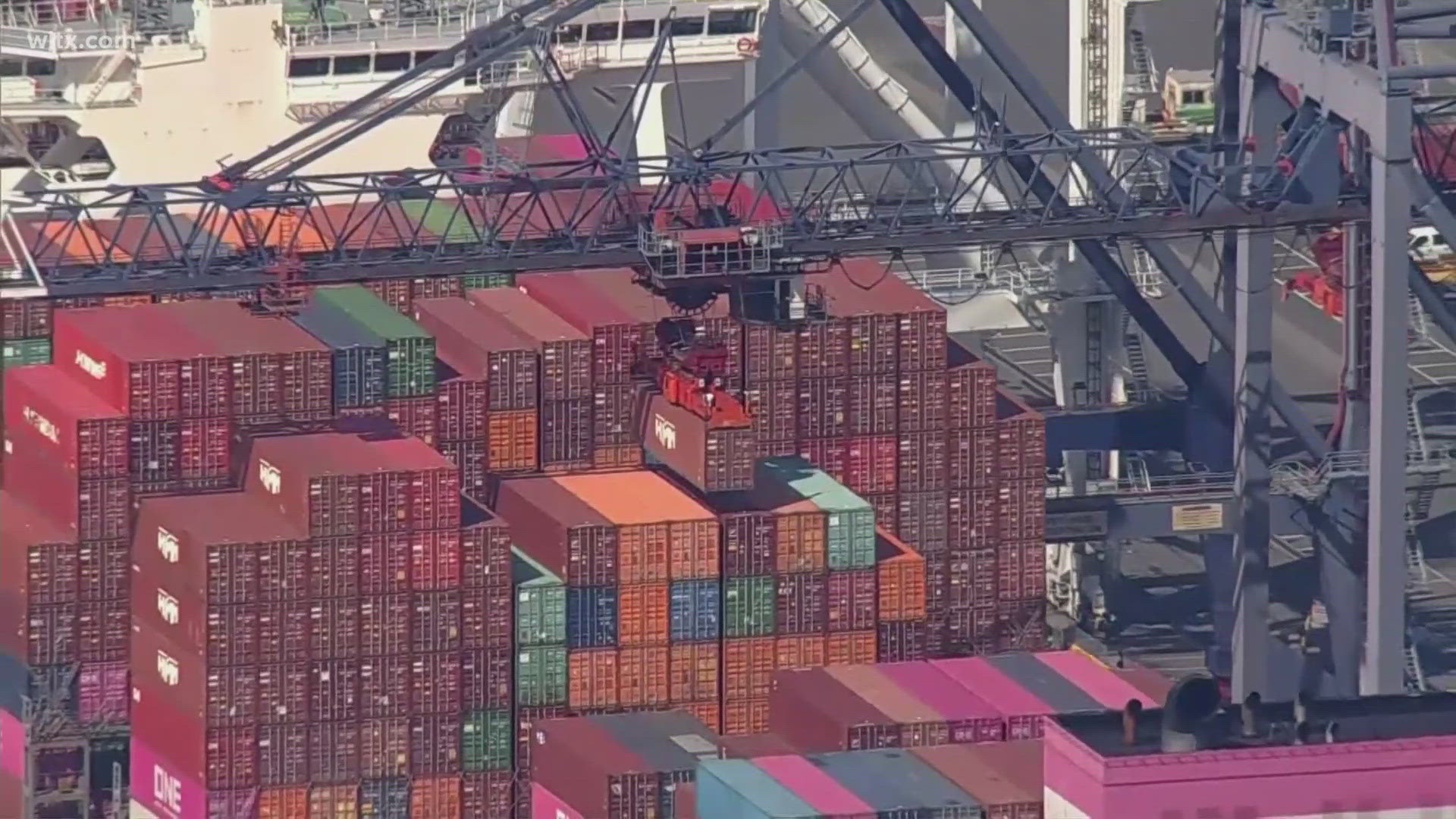COLUMBIA, S.C. — The aftermath of Hurricane Helene has severely disrupted supply chains across the Carolinas, and now economists are concerned that a new challenge may worsen the situation. Nearly 50,000 dockworkers walked out on strike Tuesday morning, demanding higher wages, which could lead to shortages and increased prices.
While communities continue to clear damaged property and debris from roads, transportation is facing significant delays. One trucker, John, who preferred to keep his last name anonymous, shared how the hurricane has impacted his job.
“The hurricane, man, it's impacted us, I mean, greatly," said John. "The traffic jams, the congestion, the frustration of the people—you know, I get to see all of that and then the frustration of the truck drivers too.”
John’s experience mirrors the broader disruption Hurricane Helene has caused for those transporting goods throughout the region, leading to longer drives and delayed deliveries.
Dr. Joseph Von Nessen, a research economist at the University of South Carolina’s Darla Moore School of Business, noted the multiple ways the hurricane has affected supply chains. “Newberry County, for example, still has significant power outages, so we see more disruptive effects there," Von Nessen explained. "A lack of power affects business activity, and roads and bridges washed out disrupt the flow of goods from businesses to consumers."
But Helene’s damage is not the only concern. On Tuesday, dockworkers along the East and Gulf Coast ports, including the Port of Charleston, began striking for higher wages, which could further hinder the movement of goods.
“There is nothing moving in and out of the port, is my understanding now. So at some point, it will certainly have an impact,” said South Carolina Governor Henry McMaster during a press conference updating the public on the state’s cleanup efforts after Helene.
Dr. Von Nessen emphasized the economic importance of South Carolina’s ports. “The port has an unusually large economic footprint of about $87 billion annually," he said. "That means the port is directly or indirectly tied to about one in nine jobs in the state of South Carolina.”
With both Helene's destruction and the dockworkers’ strike at play, experts warn that consumers and businesses could face higher costs and shortages. Perishable items, in particular, could be the most affected in the short run if transportation slows and costs increase.
“Over time, it can make it harder for businesses to ship finished products outside the United States,” Von Nessen warned. “There may be some lag if those goods have to stay in South Carolina for a longer period of time.”
Experts are continuing to monitor the situation closely as both natural and labor-related disruptions unfold across the region.

